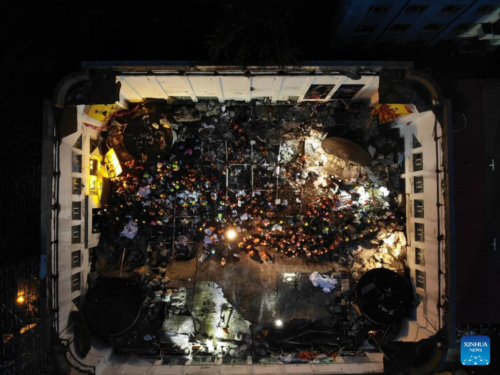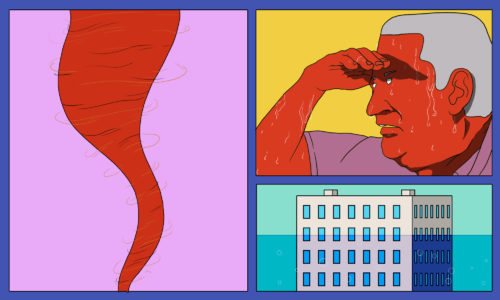Chinese Corner: The education gap, the spectacular rise and fall of Ofo, and a sexual harassment victim speaks out
Chinese Corner: The education gap, the spectacular rise and fall of Ofo, and a sexual harassment victim speaks out
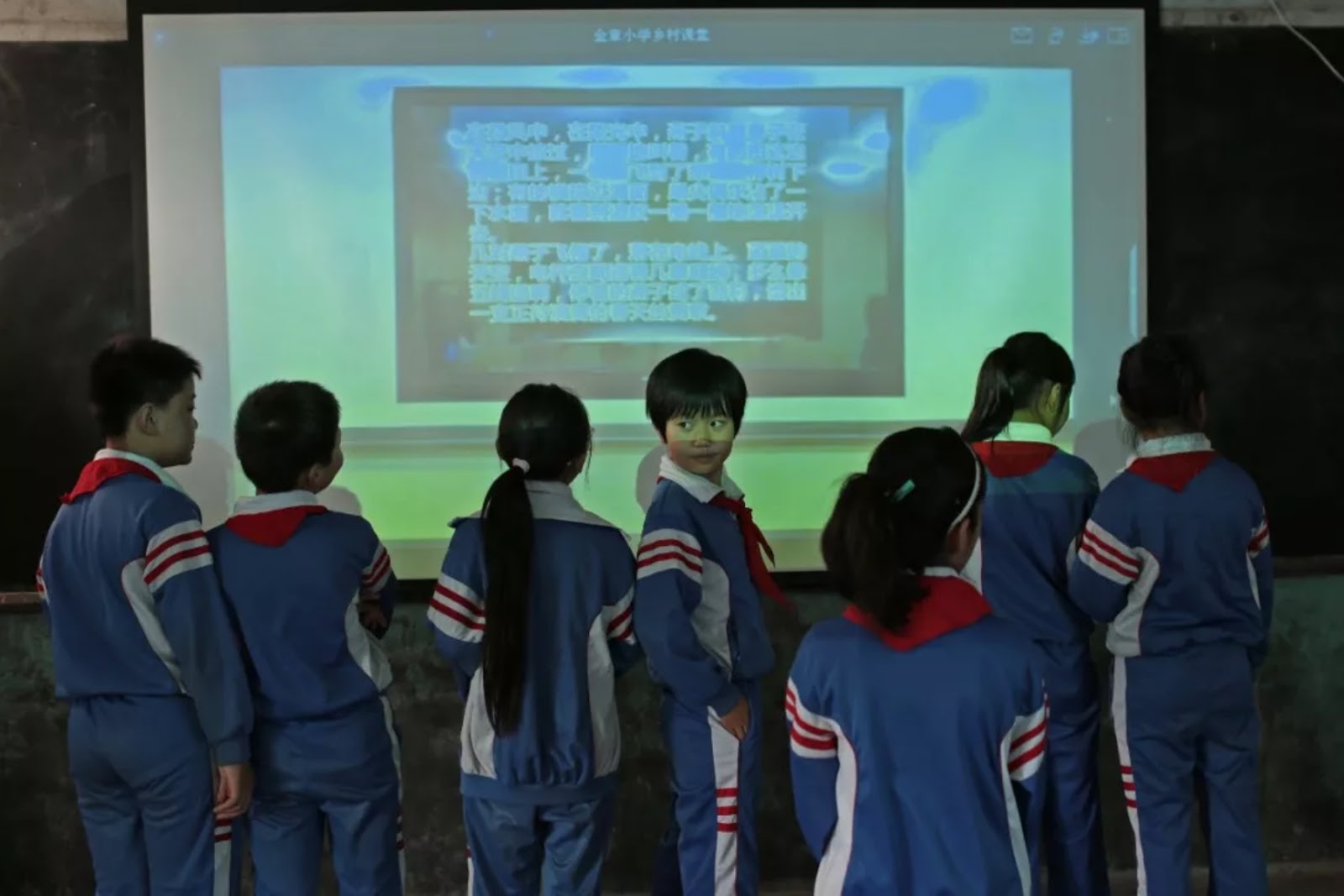
Live-streaming alone won’t fix China’s education gap
这块屏幕可能改变命运
This screen might change fates
By Chéng Méngchāo 程盟超
December 13, 2018
The education system in China has been failing disadvantaged students for a long time. Every year, scores of gifted high schoolers in rural areas have their college prospects hampered by life circumstances, such as a lack of high-quality educational resources and financial difficulties. Recently, the problem was exacerbated by a growing wave of urban, well-educated, and affluent parent committed to fostering academic excellence in their children at all costs.
But a viable solution seems to be on the horizon, as suggested by a feature article that made the rounds on the Chinese internet last week. Published by China Youth Daily, the piece features students at a remote high school in Yunnan Province who have been taking real-time classes from Chengdu No. 7 High School, a famous school known for its high college acceptance rate, via live-streaming. According to the newspaper, since its launch in 2002, the program has helped 72,000 students from 248 rural schools by giving them access to classes taught in prestigious schools. Some of them even made it to top schools such as Peking University and Tsinghua University.
In contrast with other attempts by the central government to close the education gap, such as policies that require universities to enroll more disadvantaged students by lowering admission standards, live-streaming was hailed as an effective way to reduce regional unevenness when it comes to educational resources and actually helping students achieve long-term academic success.
But the limitation of its power is also obvious, as China’s education gap is the result of several economic and cultural factors. As some experts pointed out, low-income students in China often have parents who are away, working in big cities. The lack of parental guidance and support can have a detrimental impact on academic performance even if a student goes to a good school. In addition, introducing live-streaming technology into classrooms raises questions about privacy, as students on both sides are being closely watched. Teachers at rural schools can be negatively affected, too, as live streams can significantly reduce their roles from instructors to graders.
It’s rare to see a news story about the education gap attracting as much attention as this one received. And the conversation is still ongoing. A good number of personal essays and thoughtful commentaries have been published. Even though it’s unlikely that China will completely eliminate education inequality in the near future, this week we’ve seen encouraging signs.
Related reading:
- 一块屏幕真的能改变贫困地区学生的命运吗?Is a projection screen powerful enough to change the fates of China’s poor students?
- 我也上过成都七中的“网班”,最后却选择离开 I took that class but I chose to eventually leave
- 那些没有被屏幕改变的命运 The fates that haven’t been changed by projection screens
- 有了屏幕之后,教育的下一步在哪里? With the projection screen, what’s the next step for education?
- 能改变人命运的,不只是一块屏幕 To change a student’s fate depends on more than just a projection screen
- 嘲笑那块屏幕的人,根本不懂中国的穷孩子需要什么 Those who mock the screen have no idea what poor children in China need
- 尖子生才有资格看的直播课堂,是少数人的命运游戏 Only top students have the privilege of taking live-streamed classes. This is life-changing, but only for the minority
- “这块屏幕”的远端回音:命运改变了没 Long-distance echos of “that projection screen”: Have lives been changed?
- “零一本”里失落的县中 The high school that never sends a single student to college
- “这块屏幕”刷屏之后:公平从来不只是技术问题 Inequality can never be solved solely by technology

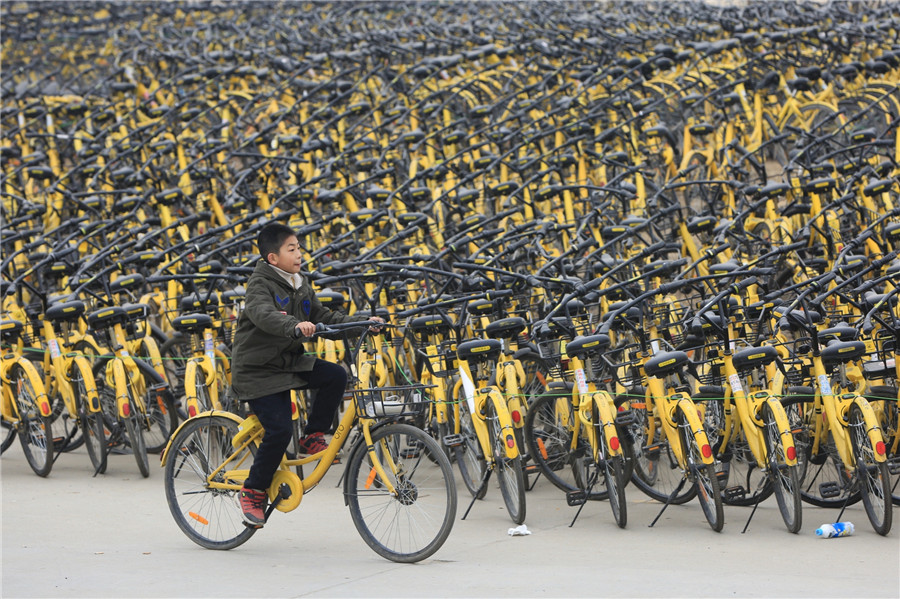
The spectacular rise and fall of Ofo
ofo剧中人:我不愿谢幕
People inside the Ofo drama: We refuse to make final curtain call
By Zhāng Jūn 张珺
December 5, 2018
Ofo, once the world’s biggest bike-sharing company, appears to be one step away from total collapse. The struggling brand is facing a host of problems, from a substantial staff loss to mounting doubts about its business model, but nothing is more troubling than the simple fact that they’ve literally run out of money while 11.7 million customers are still waiting to get their deposit back.
It’s safe to assume that Ofo is living its final days. But looking back on its history, Ofo’s story is a good one. In less than four years, it transformed from a campus-based project to a billion-dollar startup to a failed case emblematic of China’s wild venture capital scene. The story also includes Mobike, a strong rival in addition to being a collaborator that helped it build up the entire bike-sharing industry. Dài Wēi 戴威, Ofo’s founder who is currently on a government blacklist for unpaid bills, added another gripping part to the story by sending an emotional letter to his employees this week. He wrote,“I hope every person working for Ofo can share this same belief: We can’t escape. We need to hang in there bravely and be responsible for every penny we owe to our customers.”
In the past few weeks, many journalists and bloggers have tried to tell this fascinating tale from various angles. The results are this collection of stories:
- 我眼中的ofo和戴威 Ofo and Dai Wei in my eyes
- 弃子戴威:100亿的青春和1000万追债人 Dai Wei, abandoned: 10 billion youth and 10 million debt collectors
- 是时候聊聊共享经济没告诉你的那些事了 It’s time to talk about what you don’t know about the sharing economy
- ofo死干净了没有?Has Ofo died yet?
- 我给ofo打了65个电话,终于要回了199的押金 I called Ofo 65 times to get my 199 yuan deposit back


Untold truth about stan culture
三流站姐回忆录:我的追星之路是如何走到尽头的
A memoir of a third-grade fan site owner: How my fandom came to an end
By Lǐ Mǎn 李满
December 6, 2018
“Stan,” the word, was coined by Eminem in his 2000 single by the same name, about an over-obsessed fan named Stan who engages in a series of extreme actions to show his unhealthy dedication to the rapper. Afterwards, “stan,” a portmanteau of the words “stalker” and “fan,” evolved into a term to describe “an overzealous maniacal fan for any celebrity or athlete,” as Urban Dictionary notes.
While the word originated in the U.S., this type of hardcore fandom has a long history in Chinese pop culture, where “stanning” an artist often entails engagement in a number of obsessive and — at times — disturbing activities on the internet, including interacting with other devoted fans in online communities, defending idols unconditionally, liking all of their social media posts, and cyberbullying other artists feuding with their idols.
For outsiders, stan culture is intimidating. But for those who are part of it, the pain and pleasure that comes with frenetic celebrity worship is addictive — until it becomes overwhelming. In this personal essay written by a former stan who was deeply involved in the culture and eventually became exhausted by her passion, the author reflects on her complicated two-year relationship with a few celebrities, and gives plenty of insightful observations about standom.
“I met this male pop star in person more than 20 times but I never talked to him. I didn’t even try to because I learned my lessons last time. If we never communicate, he will always fit that image of that flawless person I’ve constructed for my worship, and our relationship will last longer.
“I want to completely immerse myself in fan love like others do. I imagine how much happiness I can gain from that collective act. But the thing is, I let my rationale take over my obsession, a decision that makes me question myself: Is it worthwhile to go through the immense pain that comes with intense fandom just to boost my favorite artist’s popularity on Weibo?”

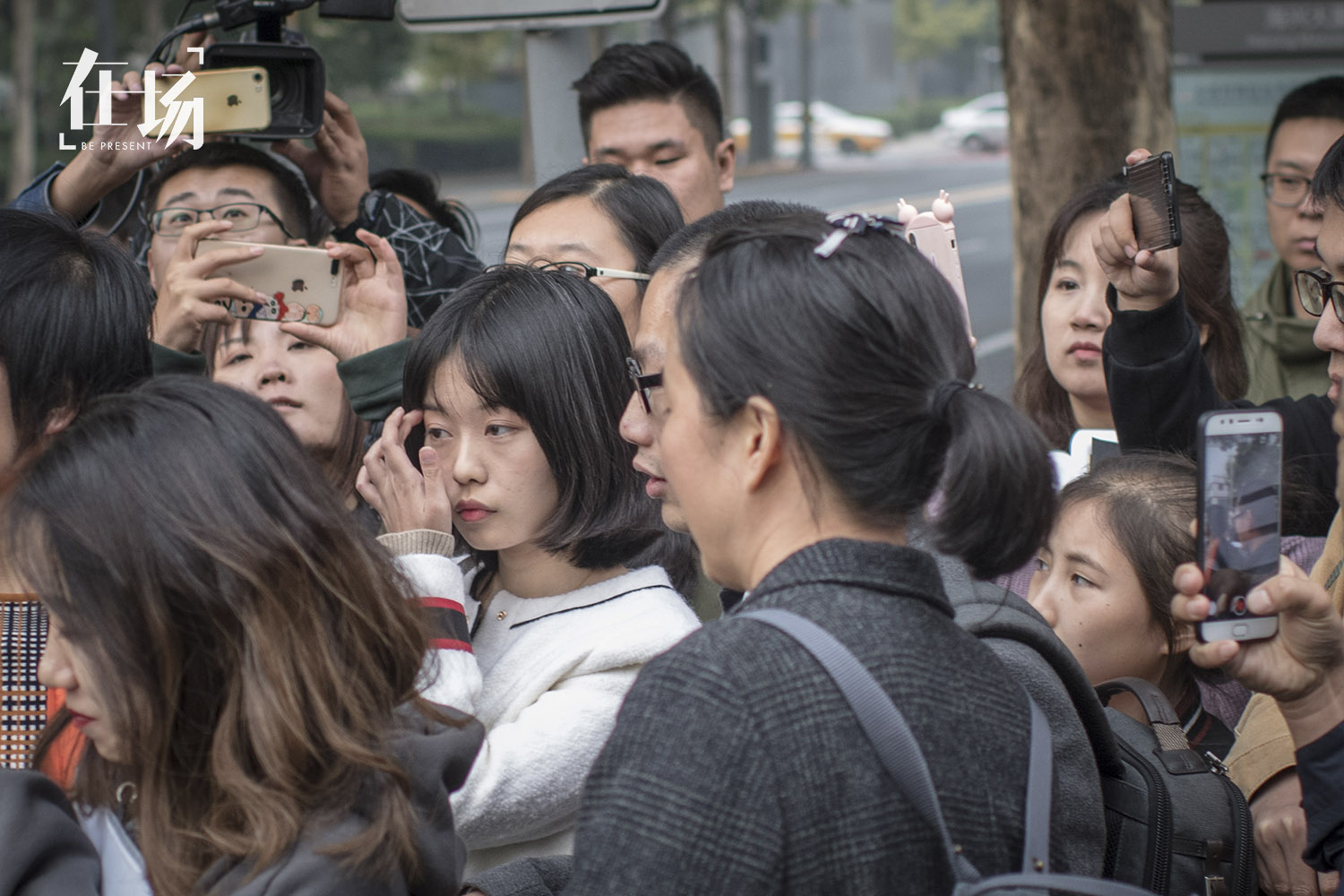
‘It’s weird that people are placing high expectations on a sexual harassment victim like me’
弦子:在一个受害者身上加注很多期望是一件奇怪的事
Xianzi: It’s weird that people are placing high expectations on a sexual harassment victim like me
By Chén Yíhán 陈怡含
December 18, 2018
It’s been almost six months since Xiánzǐ 弦子, a former intern at the state-run China Central Television (CCTV) network, came forward with sexual harassment allegations against Zhū Jūn 朱军, one of the highest-profile TV hosts in the country. In August, the accused perpetrator filed a defamation case against Xianzi’s friend Màishāo 卖烧, who shared her story in a viral post on Weibo. After Xianzi agreed to give testimony about the incident in defense of Maishao and became vocal about her experience on social media, Zhu listed her as a defendant along with her friend. In December, the Financial Times reported that Xianzi is the first accuser to file a civil lawsuit claiming infringement of personal rights.
With two lawsuits to combat, Xianzi only became more passionate in her advocacy for China’s #MeToo movement. She started to help other sexual assault victims seek legal assistance and spent a lot of time contemplating how to do more for them. “I don’t want people to think I’m doing things for the labels people put on me. I’m not doing things out of my conviction in some ideological movement. I’m doing these things because I’m a woman who deserves freedom,” Xinazi said in another article.

Below are some other articles that caught my eyes:
- 乡村自媒体“教父”李传帅和他的信徒们 Self-media king in rural China and his followers
- 老年艾滋病人数量增加背后 What’s behind the rise of HIV rates among Chinese seniors
- 永不消失的气功 Qigong will never go away
- 刘国梁“复出”,他的存在就是半部中国现代乒乓球史 | 图集 Liu Guoliang’s comeback: He’s walking witness of half of Chinese ping-pong’s modern history
- 北京老人河北燕郊养老记 Beijing seniors in Hebei elderly care facilities
- 认识一下,大货司机 Get to know truck drivers
- 不孕不育的中国人,越来越多了 More and more Chinese couples are having fertility issues
- 在北京,开一家便利店为什么这么难?Why is it so difficult to open a convenience store in Beijing?
- 海底捞的女人们 Women at Haidilao
- 一个明星保镖的自我修养 Being a bodyguard for celebrities
- 雾霾返场真相 The truth about the return of haze
- 探访新疆比特币矿场 Inside bitcoin mines in Xinjiang
- 好好的选举 来了场艳舞 Exotic dancers at an election ceremony
- 我朋友是行为艺术家,他把杨永信家里的电给断了 My friend is a performance artist, he cut off the electricity to Yang Yongxin’s house




